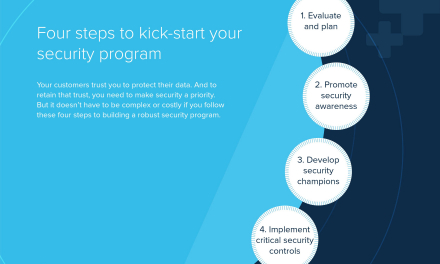Find out how workers who feel insecure and intimidated could hamper digitalization, introduce cyber risks, and then leave the organization vulnerable
In today’s new working paradigm, lacking the right corporate culture has ramifications beyond talent retention. It could also derail the success of the hybrid workplace where digitalization without sufficient security measures and digital skill sets in place could expose the organization to greater cyber risks.
Looming over this trend is the ongoing reality of the so-called Great Resignation. First starting in the USA last year with millions of employees voluntarily leaving their jobs, the movement has become a global phenomenon, and it is continuing unabated, according to a PwC study.
The factors for this massive ongoing talent migration remain manifold. While stress from prolonged pandemic-related hardship, higher wages, job fulfillment or professional progression are important factors, the key overriding driver of workforce attrition is a toxic workplace culture.
At a critical time where more organizations are turning to digital transformation to build business resilience, employee morale and emotional well-being can undermine the success of cloud adoption. For example, if office workers in a blame-and-shame work environment are too scared or embarrassed to report data loss or ransomware issues when using cloud applications, the consequences of inaction could be dire.
Deleted data has a prescribed expiry date, beyond which it cannot be recovered. If employees are afraid to own up, companies would be unable to take immediate remedial action, and important company data could end up being irretrievably lost.
Fear of reprisals is a cyber risk
In today’s hybrid work environment, employees are increasingly reliant on cloud-based technologies to help them get their tasks done. Unfortunately, with more people accessing cloud storage, the opportunities for data loss or cyber incidents, and for individuals to avoid suspicion or pass the blame, increases.
For instance, in a recent survey, just 31% of respondents in Singapore would confess mistakes that introduced ransomware into their organizations, with 25% indicating they would either do nothing or pretend it had not happened.
Such actions, coupled with the common misconception that data in the cloud is automatically safe from ransomware, would not serve organizations well—given that speed is of essence to minimize the negative impact caused by deleting or corrupting the cloud-based data.
These findings point to a larger problem: a fear of speaking up, especially when it comes to critical data loss or security breach issues. A toxic culture of shame and blame subjects an organization to cyber risks that could be avoided.
No more shaming and blaming
To mitigate the data loss and cyber breaches, organizations must eliminate the workplace culture of blame and shame.
It is easy to cast blame and be quick to point fingers, but it hardly ever helpful for addressing the root cause of the problem quickly. After all, employees play a key role in the successful adoption of cloud technology and the long-term success of the business.
In a cloud-enabled world, organizations that break down communication barriers and have an engaging work environment are better equipped to address both current and future challenges. Ultimately, it is every organization’s responsibility to protect its own data. Blaming people does not help: deploying a comprehensive backup and protection strategy across all cloud applications however, does.
One effective way to facilitate more effective communication between employees and management team is to establish formal and informal channels. By communicating openly on the defined roles, responsibilities and access rights, as well as agreed goals, organizations can help to avoid chaos and address any concerns or questions regarding security protocols and procedures.
Businesses that do not successfully navigate this cultural transformation and allow a shame-and-blame environment may find it difficult to retain or attract talent, and suffer from productivity loss; employee frustration and burnout; and increased risk of breaches. Those that establish a conducive work environment—where employees feel safe to speak up on matters that could disrupt business operations—will find themselves more adept at managing data loss issues and security threats.

















